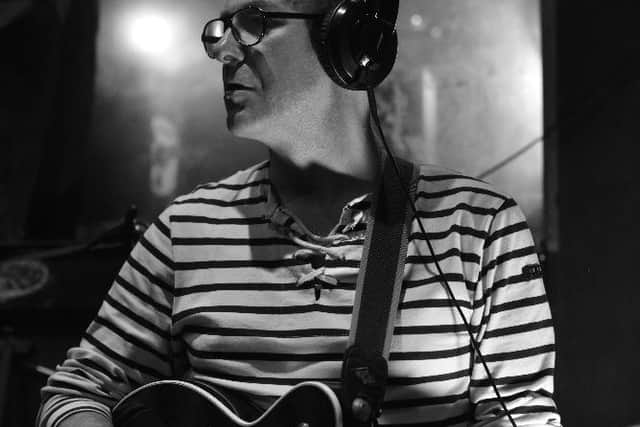Album reviews: Beyoncé | Monica Queen | Port Sulphur | Neil Young & Promise of the Real


Beyoncé: Renaissance (Parkwood Entertainment/Columbia Records) ***
Monica Queen: Stop That Girl (Last Night from Glasgow/Creeping Bent) ****
Advertisement
Hide AdAdvertisement
Hide AdPort Sulphur: Speed of Life (Last Night From Glasgow/ Creeping Bent) ****
Neil Young & Promise of the Real: Noise & Flowers (Reprise) ***
She has pioneered the visual album, the surprise album drop, the album release as an event; now Beyoncé just wants to let her hair down and dance. Despite her cultural deification, Mrs Carter lived through a pandemic like us mere mortals, so her seventh album – the first of a “three act project” – opens the musical floodgates and celebrates the freedom that comes on a dancefloor.
Despite titling one track America Has A Problem (after the song it samples), Renaissance is less politicised than previous outings. Identity does plays its part, however, on Cozy, a sultry soul pop missive on being comfortable in your own skin (colour). She also dedicates the album to her “godmother” Uncle Johnny and celebrates the underground queer ballroom scene on Alien Superstar and Pure/Honey, though not with the crossover panache of Madonna’s Vogue.
She plays it safe in simply covering Donna Summer’s orgasmic vocal line from I Feel Love on Summer Renaissance, while Break My Soul’s hodgepodge of piano house and Jamaican dancehall is not a patch on one of its sample sources, Robin S’s majestic Show Me Love.


One way to ensure a more favourable comparison is inviting the imperious Queen of Jamaica, Grace Jones, to purr on Move. The rest of the party guest list is similarly distinguished, none more so than Nile Rodgers who co-wrote the free-and-easy disco funk track Cuff It, with bonus Sheila E on percussion.
Beyoncé the rapper is out in force on the twerkable Church Girl and lascivious techno of Thique but she also keeps it old school with her trilling vocals on seductive soul number Plastic Off the Sofa, while the sultry disco track Virgo’s Groove matches its Seventies song title.
Advertisement
Hide AdAdvertisement
Hide AdAside from the striking Lady Godiva-inspired sleeve, this is a listening experience and there’s a lot going on across its dense patchwork of styles, songwriters and samples – though nothing Beyoncé hasn’t broached before, unless you count a fleeting reference to Right Said Fred’s I’m Too Sexy.
One of Scotland’s most extraordinary singers, former Thrum frontwoman Monica Queen presents her homage to the elegant Scotpop soulboy sound of the early Eighties on Stop That Girl, covering songs by the likes of Orange Juice and Bourgie Bourgie, as well as contemporaries (Vic Godard) and influences (The Velvet Underground). The whole collection is immaculate but she excels in her alt.country lane on Gene Clark’s Why Not Your Baby, while her own haunting song, What Is Home, co-written with guitarist-around-town Douglas MacIntyre, expands into a yearning epic powered by Johnny Smillie’s heroic guitar playing.


MacIntyre also releases a new instrumental album by his own project Port Sulphur. The Creeping Bent head honcho wrote all the material for Speed of Life in one day on a Hohner acoustic guitar with the strings all tuned to one note – it’s not the number of notes you use, it’s what you do with them – and then recorded with a similar spontaneity, producing the hip garage rock of Ring O, stately and dreamy Bobby Molecular and moody, melodic K-Fex, all inspired by the visual feast that is Tarkovsky’s Nostalghia and set to soundtrack a forthcoming film by Big Gold Dream/Teenager Superstars director Grant McPhee.
There is also a film to accompany the latest release from Neil Young’s live album archive. Noise & Flowers captures his 2019 tour with Promise of the Real, which he dedicated to his late manager Elliot Roberts and features his young gun backing band gently finessing the emotive country of Helpless and Comes a Time and summoning the fire of On the Beach and the desire on I’ve Been Waiting For You.
CLASSICAL
Revoiced (Chandos) ****
It may not seem the obvious sacred music combo, but recent years have shown the saxophone to marry perfectly with the sung voice and the glowing acoustics normally associated with church music. Revoiced is an enthralling album, in which the young voices of director Freddie Crowley’s Corvus Consort gel magnificently with the liquid ensemble of the Ferio Saxophone Quartet in music ranging from Gabrieli, de Lassus, Bach and Schütz to more modern-day repertoire by James MacMillan, Owain Park, Roderick Williams and Sarah Rimkus. The earlier works are immaculate arrangements by Crowley himself, the saxophones functioning like a sinuous, homogenous organ continuo to the sung voices, though exercising brilliant virtuosity in the obligato to Bach’s Nun ich weiss, or the closing Jesu, Joy of Man’s Desiring. Among the contemporary works, MacMillan’s Christus Vincit is sublime, Williams’ Ave Verum Corpus Re-imagined movingly ethereal, and Park’s Misereri After Allegri beautifully conceived. Ken Walton
JAZZ
Gareth Williams: Short Stories (Miles Music) ****
Welsh pianist and composer Gareth Williams has worked with a bewildering array of names, from Pee-Wee Ellis to Claire Martin. Here he forms a consummate piano trio alternating between two double bass legends, Norway’s Palle Danielsson and Chris Laurence, with the ever-dynamic Martin France on drums. They mesh empathetically in excursions which are often reflective, at times almost meditative in approach, typified by the opening Not Bossa, Williams’s leisurely keyboard questing before drums and Danielsson’s bass ease into a friendly dialogue. The pianist’s tribute to Danielsson, For Palle, is another quietly fruitful musical conversation that gradually livens up, the Norwegian’s bass responsive throughout. Laurence’s bass threads through the pensive Unwritten Hymn, while Derivatives is a livelier affair, France and Laurence escorting Williams’s mercurial playing with deft panache. The album’s two covers include Williams’s defiantly pedestrian singing on the old chestnut Too Young to Go Steady. Jim Gilchrist